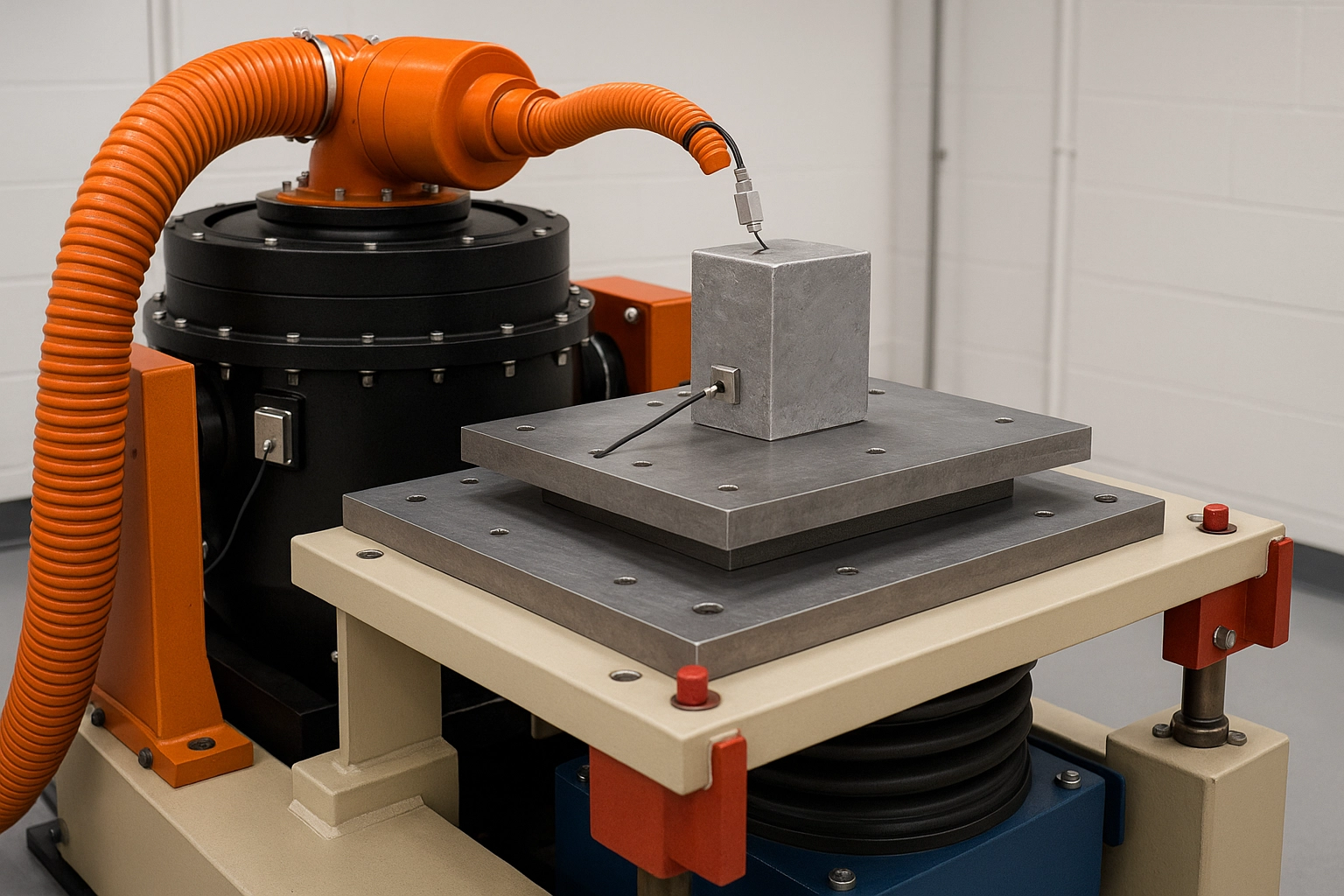DIN 60068-2-6 Sinusoidal Vibration Test for Vehicle Components
The DIN 60068-2-6 sinusoidal vibration test is a critical procedure in the automotive industry designed to evaluate the durability and reliability of vehicle components. This test simulates the dynamic loading conditions that components might experience during their lifecycle, ensuring they can withstand real-world operating environments without failure.
The test follows the internationally recognized standard DIN 60068-2-6, which specifies the method for applying controlled sinusoidal vibration to specimens such as automotive parts. It is essential in quality assurance and compliance processes, especially for components that are subject to mechanical stress due to road conditions or vehicle operation.
The test setup involves placing a specimen on a shaker table, where it is subjected to a range of frequencies and amplitudes. The frequency can vary widely depending on the specific application; typically, it spans from 10 Hz to 500 Hz with an amplitude that ranges between 1 g and 8 g, according to the test conditions specified in DIN 60068-2-6.
Preparation of the specimen is critical. Components must be representative of those used in the vehicle and free from any defects or damage before testing. The test duration can vary based on the component type, with typical durations ranging from a few minutes to several hours. Post-test analysis involves inspecting components for signs of fatigue, cracks, or other forms of degradation.
The DIN 60068-2-6 test is not just about compliance; it also serves as a valuable tool for R&D engineers in optimizing component design and performance. By understanding how different frequencies and amplitudes affect the components, engineers can make informed decisions to enhance robustness and longevity.
The test's precision and reliability are ensured by calibrated shakers and software that control the vibration parameters. Compliance with this standard is crucial for manufacturers aiming to meet international quality standards and ensure product safety and performance.
| Component Type | Durability Requirements |
|---|---|
| Battery Packs | Ensure safe operation under dynamic conditions |
| Suspension Systems | Test for structural integrity and performance stability |
| Electronic Control Units (ECUs) | Evaluate resistance to electromagnetic interference and mechanical stress |
| Rims and Wheels | Assess wear patterns and material fatigue under high-frequency vibrations |
The test's ability to simulate real-world conditions makes it indispensable for quality managers and compliance officers. By ensuring that components meet the stringent requirements of DIN 60068-2-6, manufacturers can enhance product reliability and customer satisfaction.
Why It Matters
The significance of the DIN 60068-2-6 test cannot be overstated. It is a cornerstone in the automotive industry's efforts to improve component durability and overall vehicle performance. By simulating the dynamic loading conditions that components encounter during operation, this test helps identify potential failures early in the development process.
Compliance with this standard ensures that products meet international quality standards and are safe for use. For R&D engineers, it provides invaluable data on how different materials and designs perform under various vibration conditions. This information is crucial for optimizing component design and improving overall vehicle performance.
The test's precision and reliability make it a vital tool in the hands of procurement teams. By ensuring that suppliers meet these stringent requirements, they can maintain high standards across their supply chain. Quality managers benefit from this test by having clear evidence of product reliability and compliance, which enhances their ability to manage quality assurance processes effectively.
In essence, the DIN 60068-2-6 test is not just a regulatory requirement; it is an essential part of the automotive industry's commitment to excellence. It ensures that products are robust, reliable, and safe for use in real-world conditions.
Industry Applications
- Battery Packs: Ensure safe operation under dynamic conditions
- Suspension Systems: Test for structural integrity and performance stability
- Electronic Control Units (ECUs): Evaluate resistance to electromagnetic interference and mechanical stress
- Rims and Wheels: Assess wear patterns and material fatigue under high-frequency vibrations
- Seat Mounts: Ensure durability in dynamic environments
- Powertrain Components: Test for robustness against operational stresses
- Brake Systems: Evaluate resistance to thermal and mechanical stress
- Cooling Systems: Assess performance under varying vibration conditions
The DIN 60068-2-6 test is widely used across the automotive sector, from R&D departments to manufacturing floors. It helps ensure that components are robust enough to withstand real-world operating environments, thus enhancing overall vehicle reliability and safety.
Eurolab Advantages
At Eurolab, we pride ourselves on delivering comprehensive testing services that meet the highest international standards. Our expertise in DIN 60068-2-6 sinusoidal vibration testing is unmatched, with state-of-the-art equipment and experienced professionals ensuring precise and reliable results.
We offer a range of services tailored to your specific needs, from single component tests to full system evaluations. Our facilities are equipped with advanced shakers capable of simulating various frequency and amplitude ranges, allowing us to replicate real-world conditions accurately.
Our team of engineers and technicians is highly skilled in conducting these tests according to the strictest international standards. We provide detailed reports that include comprehensive data on test parameters and results, helping you make informed decisions about your product development and quality assurance processes.
We understand the importance of timely delivery and compliance with regulatory requirements. Our commitment to excellence ensures that you receive accurate results within agreed timelines, allowing you to focus on other critical aspects of your business.
Choose Eurolab for your DIN 60068-2-6 testing needs. With our expertise, precision, and reliability, we are your trusted partner in ensuring product quality and compliance.





